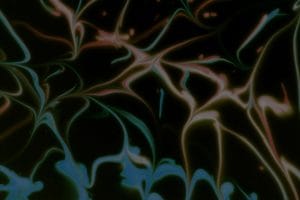**Abstract:**
Feng Shui is more than just an ancient practice; it’s a modern approach to home decor that balances energy and enhances well-being. Discover essential ornaments that can transform your space.
Understanding Feng Shui: A Modern Perspective
Feng Shui, a practice originating from ancient China, emphasizes harmony between individuals and their environment. In today’s fast-paced world, this philosophy has gained traction as people seek balance and tranquility in their living spaces. By incorporating Feng Shui principles into modern home decor, individuals can create sanctuaries that promote peace, prosperity, and well-being. This ancient wisdom not only influences design choices but also addresses the psychological needs of Western consumers, who increasingly turn to these practices for comfort and stability in their homes.
Essential Feng Shui Ornaments for Your Space
When it comes to Feng Shui, specific ornaments play a crucial role in channeling positive energy throughout the home. Items such as crystals, wind chimes, and bamboo plants are not merely decorative; they serve as tools for enhancing energy flow. Crystals, for instance, are believed to amplify energy and intentions, while wind chimes can disperse stagnant energy and invite tranquility. Bamboo plants symbolize resilience and prosperity, making them a popular choice for creating a harmonious atmosphere. Selecting the right ornaments based on their symbolism and placement can significantly impact the overall energy of your home.
The Psychological Benefits of Feng Shui Decor
Incorporating Feng Shui into home decor is not just about aesthetics; it addresses deeper psychological needs. Many individuals in Western countries experience stress and anxiety, often stemming from chaotic living environments. By intentionally arranging spaces with Feng Shui principles, people can cultivate a sense of calm and order. The presence of specific ornaments can evoke feelings of safety and comfort, reducing stress levels and enhancing mental clarity. This connection between environment and well-being is increasingly recognized, leading more individuals to embrace Feng Shui as a lifestyle choice rather than just a design trend.
Practical Tips for Integrating Feng Shui into Your Home
To effectively integrate Feng Shui into your home decor, start by assessing your space. Identify areas that feel cluttered or stagnant, as these can disrupt the flow of energy. Incorporate essential ornaments strategically, placing them in areas that correspond to specific intentions, such as love, wealth, or health. For example, placing a pair of mandarin ducks in the relationship corner can enhance romantic connections, while a money tree in the wealth corner can attract abundance. Additionally, consider the colors and materials of your ornaments, as these can influence the energy dynamics in your space.
Creating a Personal Sanctuary with Feng Shui
Ultimately, the goal of integrating Feng Shui into home decor is to create a personal sanctuary that resonates with your unique energy. This means choosing ornaments that not only align with Feng Shui principles but also reflect your personality and values. Whether it’s a serene Buddha statue or a vibrant tapestry, the items you choose should evoke positive emotions and foster a sense of belonging. As you curate your space with intention, you’ll find that your home becomes a reflection of your inner self, promoting peace, happiness, and fulfillment.
In conclusion, the role of Feng Shui in modern home decor is significant, offering practical solutions to enhance energy flow and improve overall well-being. By understanding the essential ornaments to consider and their psychological benefits, individuals can transform their living spaces into harmonious environments that support their lifestyle and emotional needs. Embrace the power of Feng Shui and experience the profound impact it can have on your home and life.










